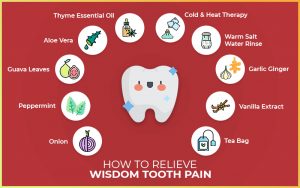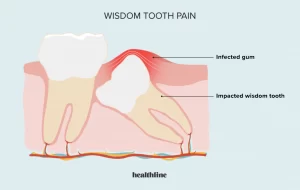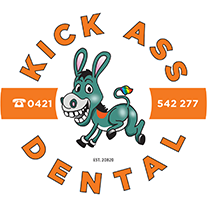How to Get Rid of Nerve Pain in Your Teeth: Effective Remedies and Tips
Experiencing nerve pain in your teeth can be excruciating and disruptive to your daily life. The sharp, shooting pain can make it difficult to eat, speak, and even concentrate. Tooth nerve pain, also known as dental pain or toothache, can have various causes, including tooth decay, gum disease, teeth grinding, and dental infections. If you’re suffering from tooth nerve pain and looking for relief, read on to discover effective remedies and tips to alleviate the discomfort.
1. Maintain Good Oral Hygiene
One of the first steps in managing tooth nerve pain is to maintain good oral hygiene. Proper brushing and flossing can help remove plaque and prevent tooth decay and gum disease, which are common causes of dental pain. Brush your teeth at least twice a day using a soft-bristled toothbrush and fluoride toothpaste. Additionally, floss daily to clean the areas between your teeth and along the gumline.
2. Rinse with Saltwater
Rinsing your mouth with warm saltwater is a simple and effective home remedy for tooth nerve pain. Dissolve half a teaspoon of salt in eight ounces of warm water and swish the solution around your mouth for about 30 seconds before spitting it out. Saltwater helps reduce inflammation, soothes the pain, and promotes healing.

3. Apply a Cold Compress
If you’re experiencing sudden tooth nerve pain, applying a cold compress can provide temporary relief. Wrap a few ice cubes in a thin cloth or place them in a plastic bag and hold it against your cheek, near the painful tooth, for about 15 minutes. The cold temperature helps numb the area, reduce swelling, and alleviate the pain.
4. Over-the-Counter Pain Relievers
Over-the-counter pain relievers such as ibuprofen or acetaminophen can help manage tooth nerve pain. Follow the instructions on the packaging and consult with a healthcare professional if you have any underlying medical conditions or are taking other medications. Remember, pain relievers provide temporary relief, so it’s essential to address the underlying cause of the toothache.
5. Clove Oil
Clove oil has been used for centuries to relieve toothache and reduce inflammation. Apply a small amount of clove oil to a cotton ball or a clean finger and gently dab it onto the affected tooth and surrounding gum area. Clove oil contains eugenol, a natural anesthetic and antibacterial compound, which can help numb the area and provide temporary pain relief.
6. Avoid Trigger Foods and Drinks
Some foods and drinks can exacerbate tooth nerve pain. Avoid consuming hot or cold beverages, sugary foods, acidic foods, and hard or crunchy foods that may aggravate the sensitive tooth. Opt for softer, lukewarm foods and stick to a tooth-friendly diet that includes plenty of fruits, vegetables, lean proteins, and whole grains.

7. Dental Check-Up
If the tooth nerve pain persists or worsens despite trying home remedies, it’s crucial to schedule a dental check-up. A dentist can examine your teeth and identify any underlying dental issues contributing to the nerve pain. They may recommend treatments such as fillings, root canals, or gum disease therapy to alleviate the pain and restore oral health.
8. Reduce Stress and Teeth Grinding
Stress and teeth grinding (bruxism) can contribute to tooth nerve pain. Find healthy ways to manage stress, such as exercise, meditation, or engaging in hobbies. If you grind your teeth, especially at night, consider using a mouthguard to protect your teeth from excessive pressure and reduce the chances of toothache. For dentist in croydon park read on.
9. Maintain Regular Dental Care
Prevention is key to avoiding tooth nerve pain in the first place. Schedule regular dental check-ups and cleanings every six months to ensure early detection and treatment of any dental issues. Your dentist can identify potential problems before they escalate and provide appropriate guidance to maintain optimal oral health.
Conclusion
Tooth nerve pain can be debilitating, but there are various remedies and tips that can help alleviate the discomfort. Maintaining good oral hygiene, rinsing with saltwater, applying cold compresses, and using over-the-counter pain relievers can provide temporary relief. Clove oil, avoiding trigger foods, and managing stress and teeth grinding are additional measures to consider. However, if the toothache persists or worsens, it’s essential to consult a dentist for a comprehensive evaluation and appropriate treatment. By taking proactive steps and seeking professional dental care, you can find relief from tooth nerve pain and maintain a healthy, pain-free smile.





